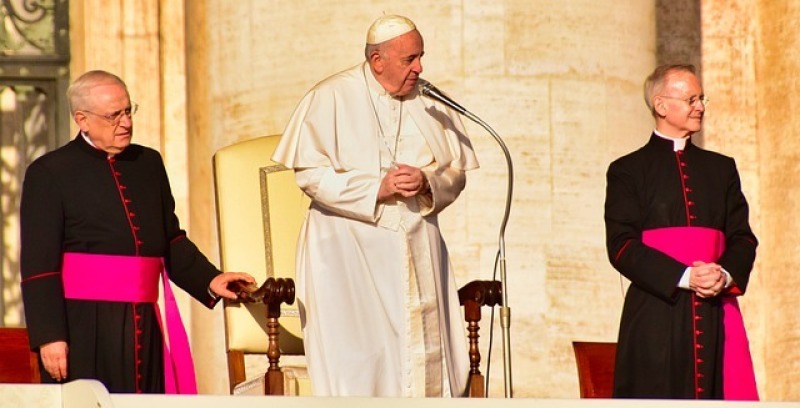
On Sunday, Pope Francis declared that negotiations to restore objects from the colonial era acquired from Indigenous peoples in Canada are currently on display in the Vatican Museum are underway. The Pope stated that he would be open to considering the repatriation of other problematic items from the Vatican collection individually.
When discussing these issues during an airborne press conference on his way back from Hungary, Pope Francis cited the Seventh Commandment as his guiding moral code, saying that if you steal something, you have to might as well return it.
Pope Francis Advocates for the Return of Colonial-Era Artifacts to Indigenous Peoples in Canada
According to Associated Press News, Pope Francis made the most recent announcement after returning three Parthenon sculptural fragments to Greece that had been kept in the Vatican Museums' possession for two centuries. The Pope called this restitution "the right gesture" and urged other museums to follow suit when practical.
The speech made by Pope Francis stresses the significance of cultural preservation and preserving the cultural heritage of other countries and people. He emphasizes the need to manage historical and cultural objects ethically and responsibly by urging the repatriation of artifacts where it is practical. The Pope's message calls for people to be aware of these treasures' history and make every effort, when practical, to return them to their original owners.
Returning artifacts can promote international goodwill, heal historical scars, and advance cultural heritage knowledge. Organizations and individuals must collaborate to address problems with the ownership and preservation of cultural items and to respect the rights and legacy of the communities they represent.
Many of the items in the Vatican's extensive collection of Indigenous artifacts and works of literature were brought to Rome by Catholic missionaries for a 1925 exhibition in the Vatican Gardens. According to a shared article in VOA News, the Vatican asserts that these objects, such as ceremonial masks, wampum belts, and feathered headdresses, were present. Still, Indigenous historians question whether Native peoples could have freely given their handicrafts given the power relations in place during colonial times.
The first Latin American Pope, Pope Francis, is well-versed in this background. He visited Canada last year to personally apologize to the Indigenous peoples for the abuse that Catholic missionaries committed against them in residential schools. Indigenous communities visited the Vatican's Anima Mundi museum before his visit to see some of their ancestors' creations. They desired to be given more access to the collection and give back specific objects.
Also Read:Pope Francis Alerts Vatican Staff to Beware of 'Elegant Demon' in Their Midst
Growing Recognition of Historical Injustices
According to the article shared in WGN Radio, the comments made by Pope Francis and the Vatican's rejection of the "Doctrine of Discovery" show a more significant commitment to redressing past wrongs committed against Indigenous peoples. The Vatican's determination to address and correct past wrongs is demonstrated by the restoration of Indigenous artifacts and the formal repudiation of the doctrine that justified the colonial-era appropriation of Native territories.
This development is significant because it allows other organizations and countries to follow suit in acknowledging historical wrongdoings and acting to undo the harm. Healing and reconciliation between Indigenous peoples and the institutions that have harmed them in the past can result from accepting Indigenous rights, cultural heritage, and the demand for compensation.
Related Article:Vatican Takes a Stand Against Colonialism-Supporting Doctrine

















